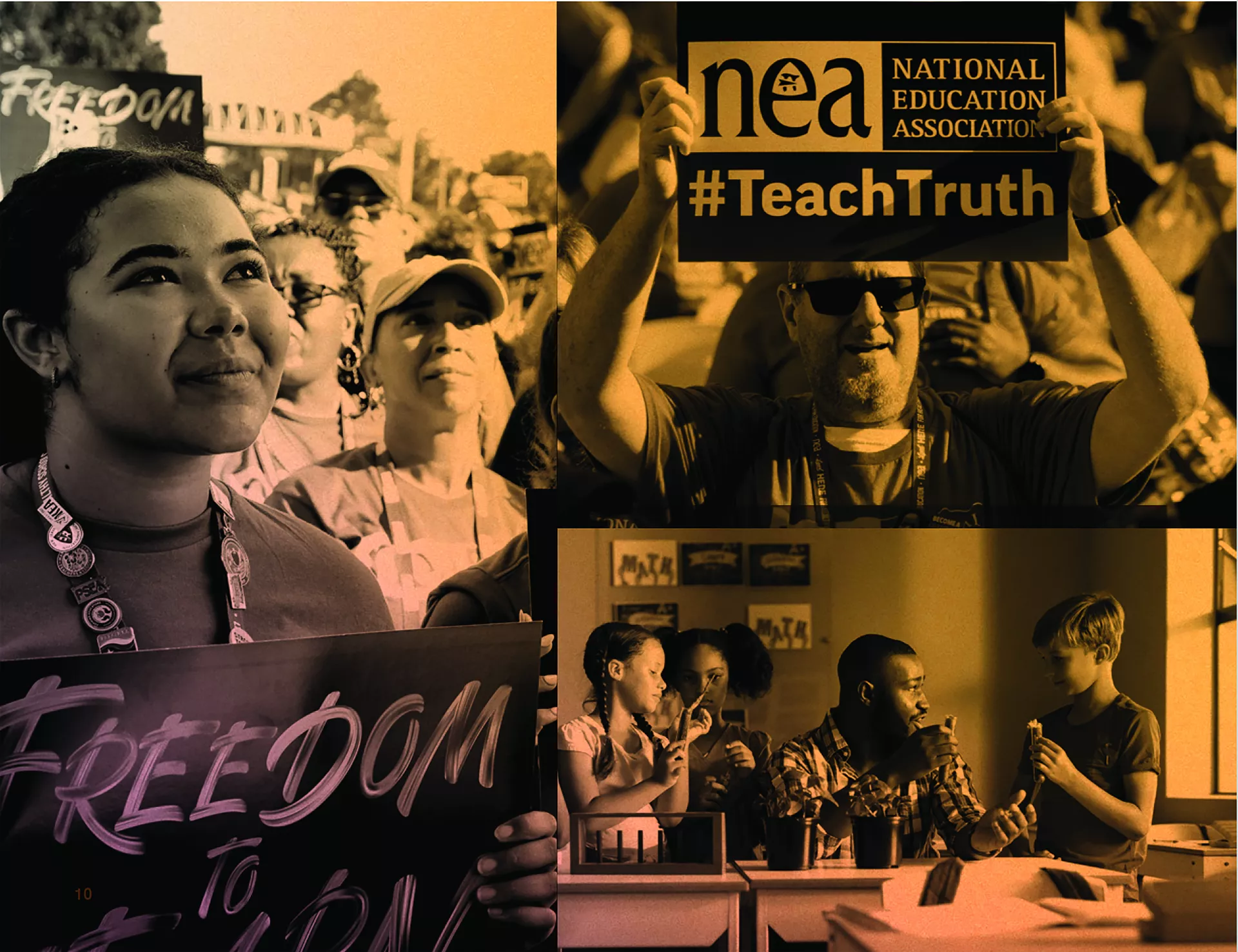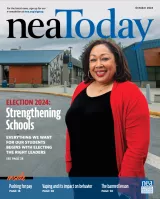For almost seven days Cecily Myart-Cruz held the line. On strike and not giving up, Myart-Cruz and her fellow Oakland, Calif. teachers weren’t just asking for a fair contract for themselves, but they refused to give in until they had achieved what they called “common good” demands. The union bargained for more than pay, benefits and school-based needs. Educators wanted things that help their community, improve the lives of their students, and increase racial equity. Involving the community, the union used a negotiating tactic called Bargaining for the Common Good to achieve their list of “wants,” including utilizing unused school buildings for nonprofit housing developments, resources for unhoused students, and funds for programs such as the Black Thriving Community Schools which would empower Black students with leadership opportunities.
“The groundbreaking common good demands won in Los Angeles and Oakland are proof that by standing together, educators have the power to effect change outside of normal bread-and-butter issues,” said Myart-Cruz, President of the UTLA and Bargaining for the Common Good Advisory Committee member. “Now, students and communities will benefit from the hard work that educators have put in to achieve these victories.”

How does it work?
With Bargaining for the Common Good, union members partner with the community around a long-term vision for the structural changes they want to see in their communities. Together, they use collective bargaining and advocacy as critical components in a broader campaign to win that change, advance racial equity, and build people power. Bargaining for the Common Good works both in areas that have collective bargaining and those that do not. The mechanics may differ, but the fundamentals are the same. A Common Good bargaining strategy centers around five elements-engaging community allies, including racial justice in your list of wants and needs, expanding the scope of bargaining beyond wages and benefits, exposing those working against public schools, and strengthening your internal membership through organizing and engagement.
Bargaining strategy: What can you ask for?
The beauty of the strategy—you can ask for whatever you believe will help your students succeed and your members thrive. NEA members have successfully used Bargaining for the Common Good to win things like less testing, smaller class sizes, equitable school discipline policies, an end to random backpack checks, no ICE (Immigration and Customs Enforcement) collaborations, and more.
As with most things in life, relationships are key when you’re bargaining for the common good. The “common good” is not always the same, it depends on the community in which you live, making allies critical in the process. Another key tactic—finding strength in numbers, particularly when you’re asking for something that’s “hard,” like racial equity.
“Bargaining for racial justice is a radical idea and will not be easily won,” wrote Maurice Weeks and Marilyn Sneiderman in the opinion piece, “Why Labor and the Movement for Racial Justice Should Work Together.” The authors go on to say, “[Bargaining for racial justice] will require concerted direct action targeting the real decision makers in both the public and private sectors that have a vested interest in keeping racial inequities in place.”
Racial justice while Bargaining for the Common Good
During negotiations and advocacy, educators should center their demand on addressing the role employers play in creating and exacerbating structural racism in our communities. To engage in that discussion, NEA’s new “Bargaining for the Common Good Racial Justice Guide” explains how educators must first identify the problems, asking key questions like “What inequities are you noticing?” and “How did things get this way,” and “Are things worsening or improving?” to “What solutions could address the root causes and eliminate inequities?”
Back in California, where groundbreaking changes occurred in racial justice issues, increases in salary, and more, the educators know all about asking the right questions, and working with the community. The positive change was hard to achieve—but they stress that just because something is hard doesn’t mean it’s not worth doing. “Collective action led us to one of the biggest wins for our school districts, while also recognizing the essential work of educators who are willing to put their profession on the line to ensure that future generations are supported,” said Myart-Cruz.
Examples of Bargaining for the Common Good Wins
The negotiations strategy is working across the country, here are just some of the wins!
Columbus, Ohio
The Columbus Education Association (CEA) won an agreement to help address racism and racial disparity. As part of its newest contract, CEA earned professional development opportunities for bargaining unit members in the school board’s ongoing strategic plan.
Seattle, Washington
Following a weeklong strike by more than 6,000 educators of the Seattle Education Association, a new three-year contract was settled with major wins for both the students and educators of Seattle Public Schools (SPS). They established a Joint Task Force for multilingual education and language immersion to improve inclusionary services and student equity and create incentives for teaching.
Minneapolis, Minnesota
The Minneapolis Federation of Teachers (MFT) established the Anti-Bias Anti-Racist Educator Development and Support Council, which set up subcommittees specifically tasked with recommending and establishing initiatives for recruitment, retention, and development of educators of color, and the improvement of district-wide climate and culture.
Bargain This
Use this example when you're asking for things to help your students and communities.
Student-Centered Curriculum. We demand a well-rounded pre–K through–2 curricula which includes physical activity, appreciating or creating art and music, learning new languages, learning how things work by creating science experiments, solving mathematics problems with multiple approaches, reading fiction and non-fiction books, and more.
—Manchester Education Association, MEA/NEA-NH/NEA
Join Our Movement




